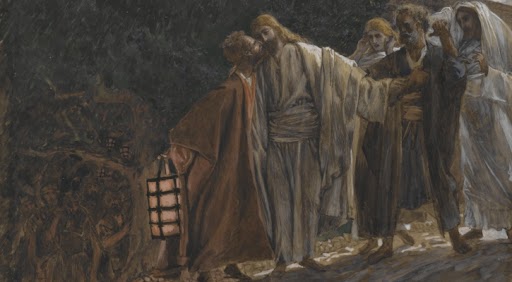
WASHINGTON — Wednesday of Holy Week, when Christians commemorate the betrayal of Jesus by the disciple Judas, also has the unusual name of Spy Wednesday.
The term is used to describe the action of Judas, who, in Matthew’s Gospel, told the chief priests he would hand Jesus over to them and, in exchange, would be paid 30 pieces of silver.
“From that time on, he looked for an opportunity to hand him over,” the Gospel passage says, meaning that Judas was essentially spying on Jesus, considering the best time to turn him over to the group of elders known as the Sanhedrin.
The term Spy Wednesday is not used much today, but other terms have been used to describe Wednesday of Holy Week, including Crooked Wednesday, Black Wednesday, and even Silent Wednesday, as the Gospels do not record any words or actions by Jesus on this day.
The website wordhistories.net says the term was used in correspondence and newspaper articles in the 1880s.
In a 2020 homily, Pope Francis specifically mentioned the term Spy Wednesday, calling it “the day in which the Church underlines Judas’ betrayal. Judas sells the Master.”
In that homily, the pope said, “What Judas’ life was like, we do not know. He must have been a normal boy, perhaps, also with anxieties because the Lord called him to be a disciple. He never succeeded in being one.”
Pope Francis said that Judas’ love for money “led him beyond the rules: to stealing, and from stealing to betraying, there is only one step, a very small one.” The pope also pointed out that Jesus never called Judas a traitor. He only said that he will be betrayed.
The pope emphasized that the story of Judas is about the devil’s temptation and how the devil does not provide a reward.
“He promises everything, shows you everything, and in the end leaves you alone in despair to hang yourself,” he said.
Pope Francis also urged Catholics to think about the times they too could respond as Judas did, saying, “Each one of us has within the hour of choice: between loyalty or interest. Each one of us has the ability to betray, to sell, to choose for one’s own interest. Each one of us has the opportunity to let ourselves be attracted by love of money or goods or future well-being.”
